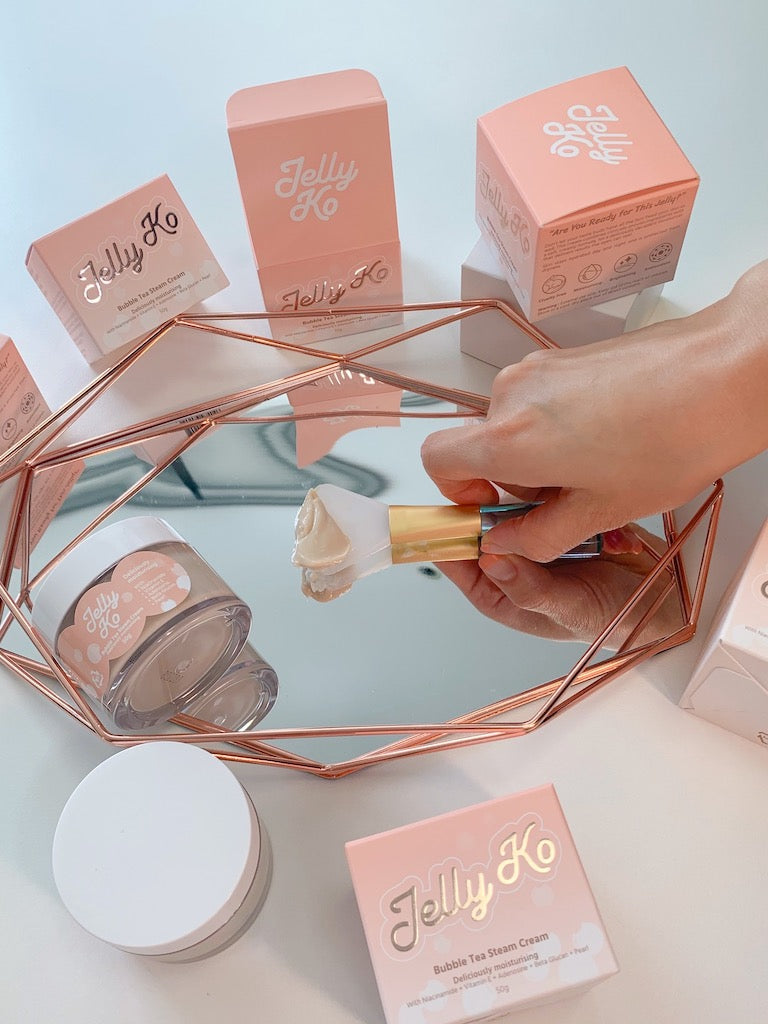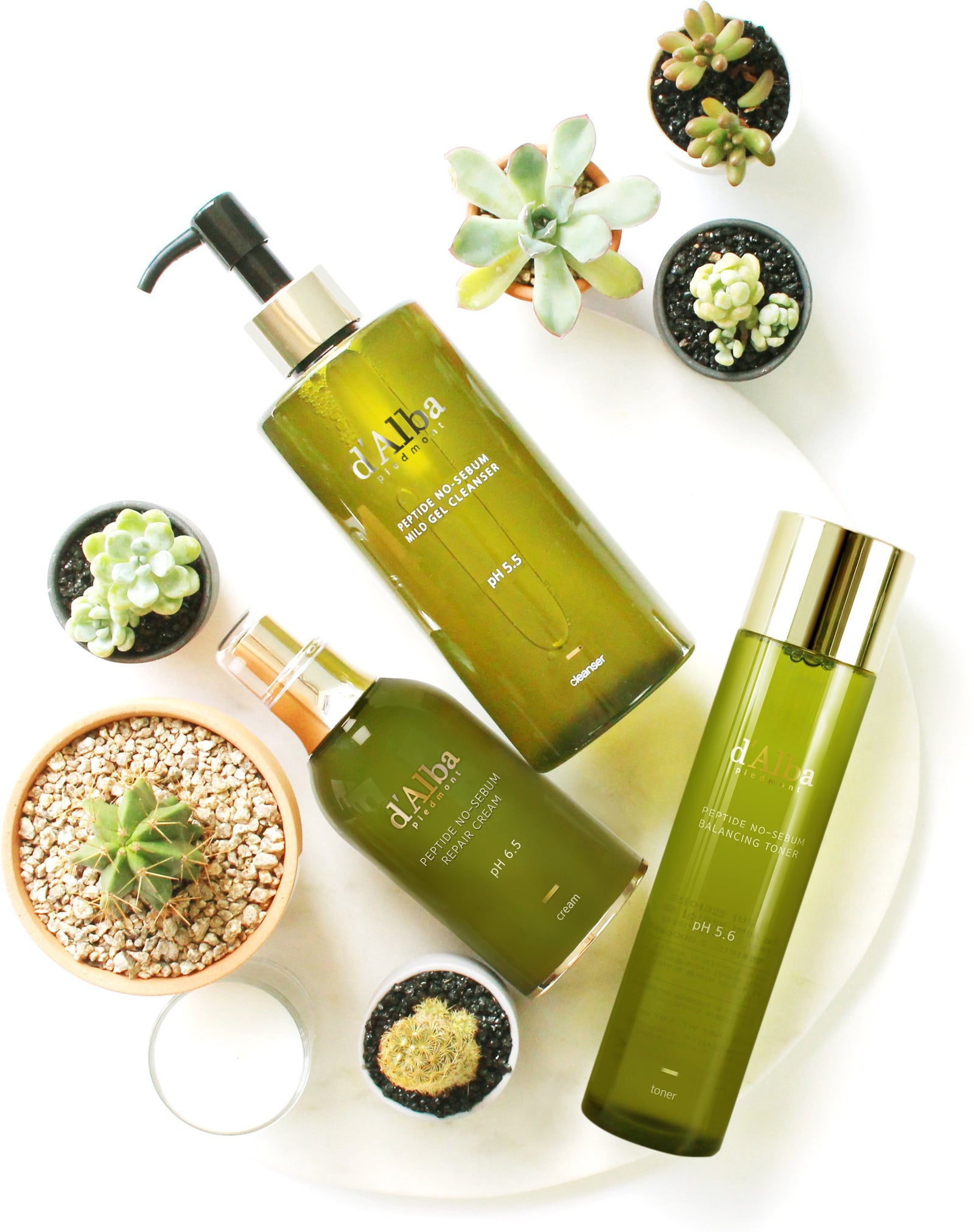The Korean Beauty Show 🎧 Your K-Beauty audio library starts here →
Menu
Why Should I Use Vitamin C Serum?
January 01, 2021

Why Should I Use Vitamin C Serum?
If You’ve Ever Wondered Whether You Should Be Using A Particular Product In Your Skincare Routine Or What It Does, Style Story’s “why Should I Use…” Blog Series Is For You!
We’ve Previously Looked At Toners, Serums, Sunscreen And Essence. Today, We’re Looking At A Beauty Product Guaranteed To Take Pride Of Place In Your Beauty Cabinet, Without Being Just Be Another Passing Fad.
Today, let’s take a look at the big guns of skincare – Vitamin C!
What Is It?
A serum containing the active ingredient Vitamin C as one of the star ingredients.
Research has shown that using Vitamin C in concentrations as low as 0.6% can provide both antioxidant and anti-aging benefits to skin.
What Does It Do?
Vitamin C acts as an antioxidant to repair and renew skin cells and give the skin a healthier look. It also helps produce collagen, which binds the cells of our body.
It stimulates the synthesis of collagen to give tighter, firmer and less saggy skin. It also restores and regenerates skin, to help it repair itself quicker. Vitamin C can even protect you from the sun by counteracting the sun’s harmful effects and thickening the dermis layer (although it’s not a replacement for sunscreen.)
What Difference Will Using One Make To My Skin?
A well-formulated Vitamin C Serum is a hard-working addition to any skincare routine. With frequent use, you will notice:
1 Skin tone that is smoother and more even2 A brighter complexion
3 An improvement in the condition of your skin, including an increase in hydration
4 A visible reduction in post-inflammation acne scars and pigmentation.

How Do I Use It?
Vitamin C serums are very simple to use – but – there are a few tips to follow to maximise their efficiency.
First, it is best to use your Vitamin C straight after cleansing. Simply place a few drops in the palm of your hand and gently pat it into your skin until it is fully absorbed.
Next, be sure to wait at least 20 – 30 minutes before applying the next step in your skincare routine.
The reason?
The effectiveness of Vitamin C is pH dependent. This means that if the pH of your skin is too high or low, the serum will be ineffective. To get the most out of your serum, use it directly after cleansing and wait 20 to 30 minutes before starting the next step in your skincare routine.
To avoid these wait times, you can also use a pH adjusting toner straight after cleansing.

Tips:
1 If you are using Retinols at night, use your serum in the morning to avoid interaction.
2 If you have never used a Vit C serum before, introduce it to your routine slowly, starting off twice a week and building up to daily use.
3 To prevent your serum from oxidising too quickly, you can try storing it in the fridge.

Our Top Vitamin C Serum Picks
Our top picks include:
COSRX Vitamin C Serum – a lightweight Vitamin C booster that fight early signs of aging. In addition, it helps improve skin's brightness. COSRX's potent serum is formulated with a stabilized form of Vitamin C at a pH of 3.36. This assists to minimise reactions when the product comes into contact with air.
APLB Vitamin C Ampoule Serum – Looking for a Vit C serum gentle enough to apply day and night without irritating your skin? APLB’s pure Vitamin C serum is certified for skin brightening and wrinkle improvement. It contains a veritable buffet of skin brightening and anti-aging ingredients. It is 100% animal cruelty free.
Neogen Real Vita C Serum – Combining powerful brightening ingredients with a vitamin complex (Vitamin E, Vitamin B5), this serum works to brighten and firm the appearance of skin for a healthy-looking complexion.
SOME BY MI Galactomyces Pure Vitamin C Glow Serum– Restore your complexion’s radiance with this serum boasting 3% pure ascorbic acid (vitamin C) and 75% galactomyces ferment filtrate. In addition to its brightening benefits, galactomyces is also known to moisturize, smooth skin texture and boost elasticity.
Want Even More Vitamin C? Try:
APLB Vitamin Propolis Moisture Cream – When the skin has been damaged by the effects of the sun, it’s time to call in the big guns of skincare. Vitamin C, Propolis, Sea Buckthorn and Niacinamide target wrinkles, loss of elasticity, dark spots and uneven skin tone in this highly effective moisturiser from APLB.
Do you use a Vitamin C Serum? What difference has it made to your skin? Let us know in the comments.
STYLE STORY – Your Style, Your Story
Shop Now
"Research has shown that using Vitamin C in concentrations as low as 0.6% can provide both antioxidant and anti-aging benefits to skin."
- Oregon State University



Leave a comment
Comments will be approved before showing up.